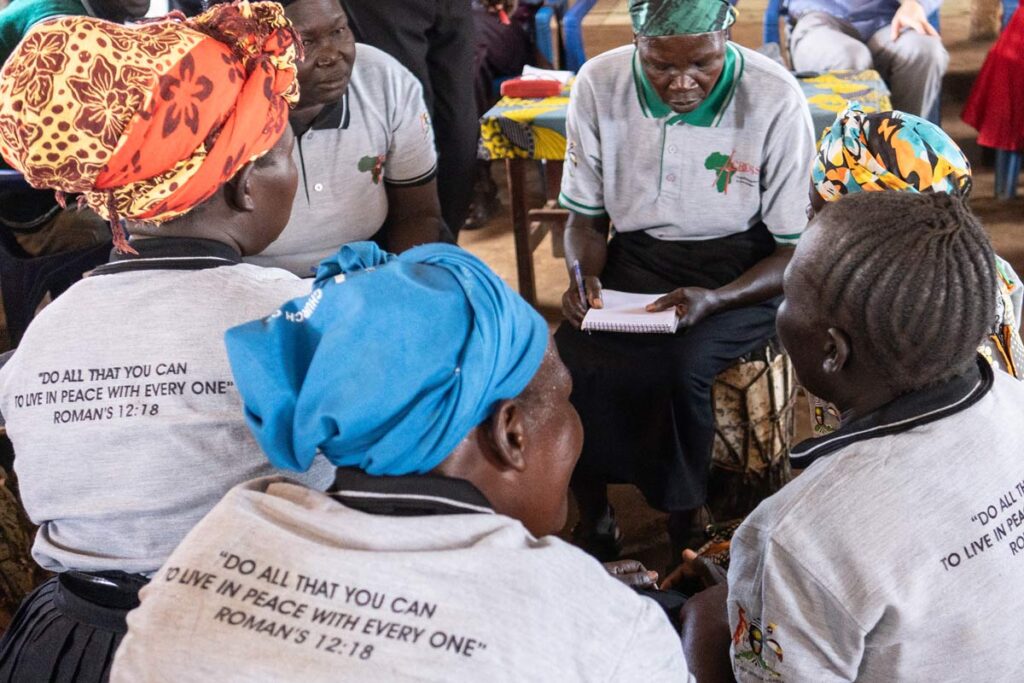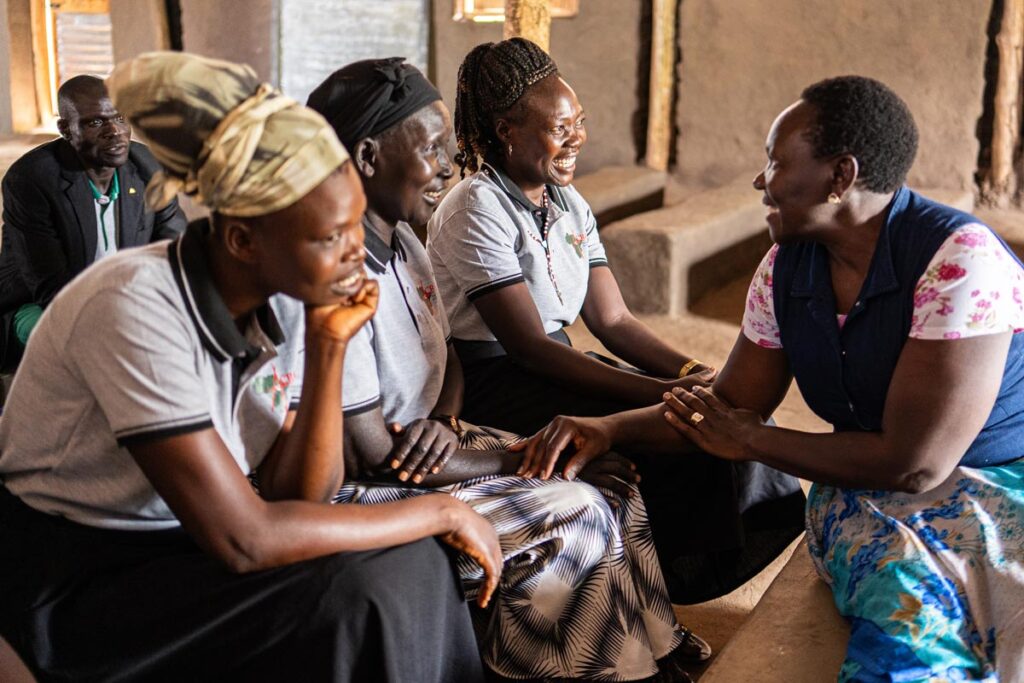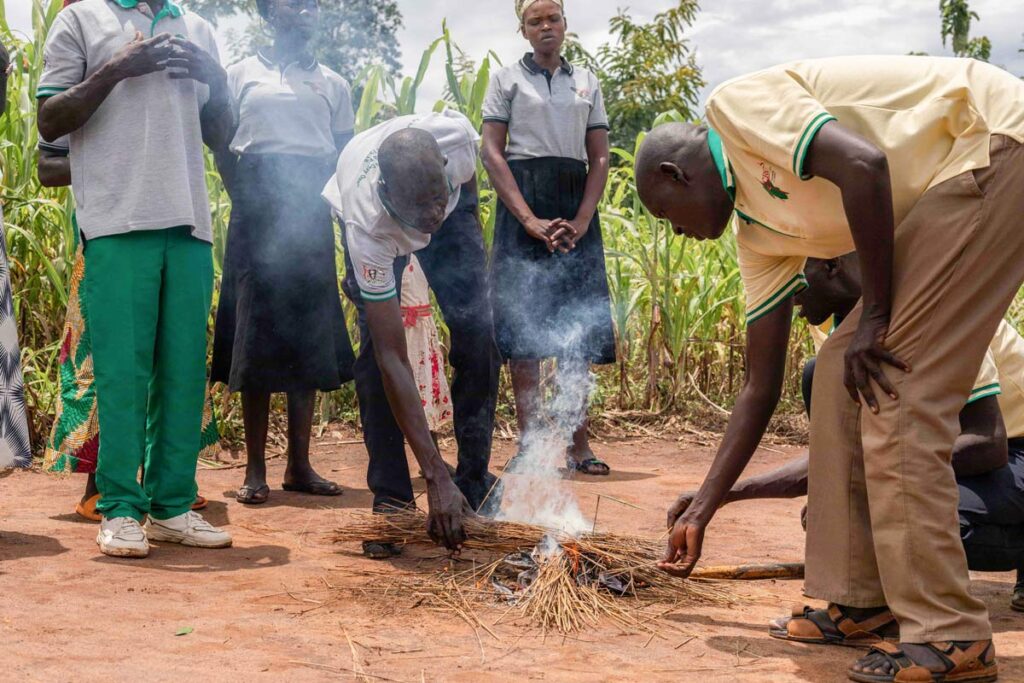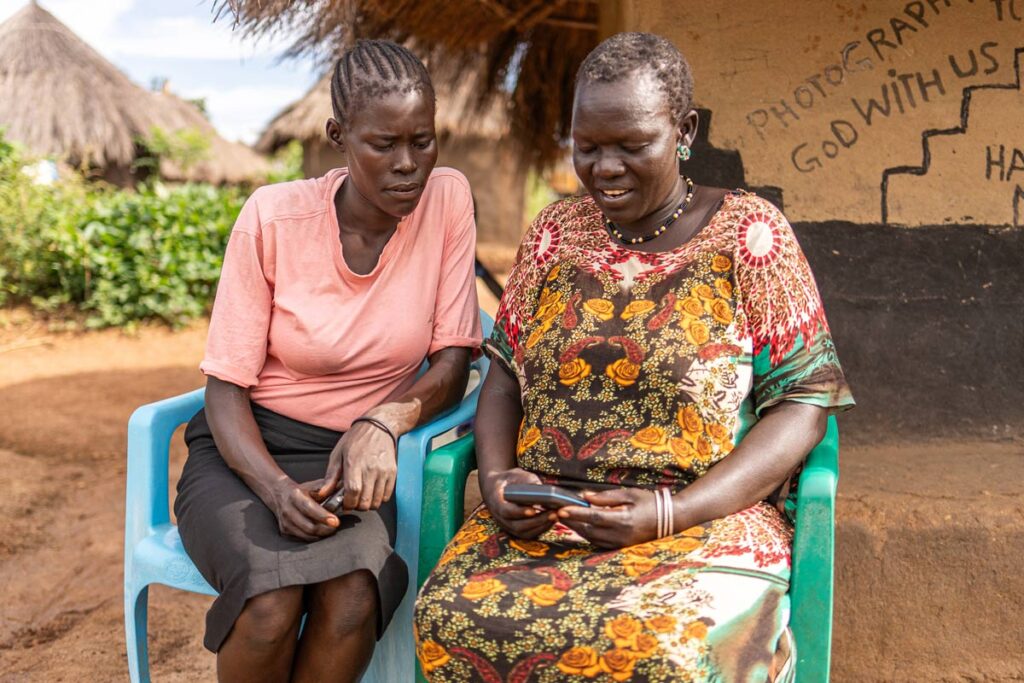Tragedy, trauma, transformation
Refugees in northern Uganda are seeing how following Jesus makes peace possible
#JesusNeverGivesUp
Photo: Hellen found healing and encountered Jesus through trauma healing workshops in a refugee camp in north west Uganda
In northern Uganda, hundreds of acres of what used to be jungle is now home to around one million refugees spread across a number of refugee camps. Many of these refugees have been here for six or seven years, or even longer. Each of them has a tragic story of leaving South Sudan.
When the war began at the end of 2013, many communities descended into anarchy as different tribes fought each other. Children were drafted in as soldiers, women were raped, men were killed. Over the next few years, many ran for their lives to Uganda.
Betty remembers running from gunfire with her brother and his children. Betty’s brother looked back and was shot down. Betty kept running with his children and they made it to the border, where they were taken to a refugee camp.

Lilias’s niece was shot in front of her. Lilias went home and gathered her four children and they set off on foot towards the border. There was no time to take anything with them.
Hellen’s father was killed in the war in 2014. She found her way to the border by following strangers along the road – she didn’t have any family left.
There are one million more stories like theirs.
Leaving war behind, but carrying its effects
In the refugee camp, people are safe from the war, but their suffering stays with them. “Everyone is traumatised,” says Satimon about people arriving in the camps. Satimon is a facilitator of Bible-based trauma healing first trialled in 2018 as church leaders saw how trauma affected refugees’ daily lives.
At night, gunfire haunted them and they dreamed about the husbands, wives, brothers, sisters and children they had lost. During the day, they feared they would one day be killed by bullets too. This is what it looks like to live with trauma.

Many people also felt justifiably angry towards those who killed their loved ones. Weighed down by their trauma and hatred, people couldn’t live in peace with each other. For adults, in many cases, this leads to domestic violence, alcohol and substance abuse and sometimes suicide. In one camp, they lost six people to suicide, and there have been many more attempts besides.
According to Nimaya Badi Joseph, one of the children’s workers in the camps, children in the refugee camps act up, doing whatever they want, and their parents are unable to control them.
Finding hope in darkness
Betty, who escaped the war with her brother’s children, couldn’t move on from the fact that her brother had been killed. She lived with terrible pain in her heart and became very thin, wasting away through bitterness towards those who had killed him.

One day, someone gave her a small black device, about the size of a phone. This, she discovered, was a digital audio player (DAP), and it played Bible stories such as the story of Joseph being sold into slavery and later forgiving his brothers. Betty was also invited to a trauma healing group, where she could open up and talk about her trauma when she was ready. Through meeting Jesus, spending time in God’s Word, sharing with others and actively working at forgiveness, she has found God’s healing and now has peace in her heart. She has even been able to forgive those who killed her brother, and others can see the difference in her. She has returned to a healthy weight.
Many others like Betty have needed or still need trauma healing. According to CMS local partner Sam Malish, trauma healing is one of the greatest needs in the camps.
Following training with New Hope, Sam began the first trauma healing group in Satimon’s church in one of the refugee camps in 2018. The model is simple – the group meets together weekly and learns one Bible story (that they can later teach others orally), beginning with the story of Joseph.
Each of the stories in the programme focuses on someone in the Bible who faced trauma and looks at how God met that person in their trauma. Sam and other Christian leaders in the camps also distribute DAPs, which play all the same Bible stories. Following growing demand, they have also started playing the recordings through loudspeakers in the camps.

Identifying with the characters through hearing and acting out the Bible stories helps people process what they have been through and meet God in their trauma.
Members of trauma healing groups are also invited to a powerful healing activity where they can write their heartache on paper and commit it to God. The pieces of paper are burned as a symbol of repentance, showing that the old has gone and the new has come. When asked how it feels, Hellen, who committed her life to Jesus through trauma healing, says, “I feel so good. I feel so relieved. I feel as if there’s nothing that is traumatising me now. I am free.”
Is peace possible?
Many refugees seem surprisingly hopeful about the prospect of peace in South Sudan. “It is possible, because we are serving the living God,” says Hellen. Where there used to be tribalism, unforgiveness and enmity in the camp, there is now forgiveness and unity.
Grace, who is involved in children’s ministry, has seen a big change in the children over the years they have been here. Where they used to be badly behaved, disrespecting people and fighting with each other, Grace sees them being respectful, apologising and forgiving each other. She is passionate about raising up a generation of peacemakers who know Jesus. “Peace will be possible when we have a generation that can forgive. The next generation is growing up differently.”
Multiplying healing
Since they began trauma healing in 2018, Sam and the other facilitators have distributed over 1,000 DAPs and mini speakers and taken about 230 people through trauma healing.
Many of these people could go on to lead trauma healing groups themselves, as the programme is designed to train participants as they go through their own trauma healing.
Satimon himself became a facilitator after finding relief from his own trauma through a group. “The programme is multiplying healing in wounded hearts, bringing hope to the people,” he says.
Trauma healing is not a quick fix, and trauma isn’t healed in just a few sessions.
But Sam, the church leaders and the refugees in these camps haven’t given up.
Jesus hasn’t given up. Neither have we.
Photo: “We must know how to forgive; if there is forgiveness there
will be peace in our country…” says South Sudanese refugee Lilias